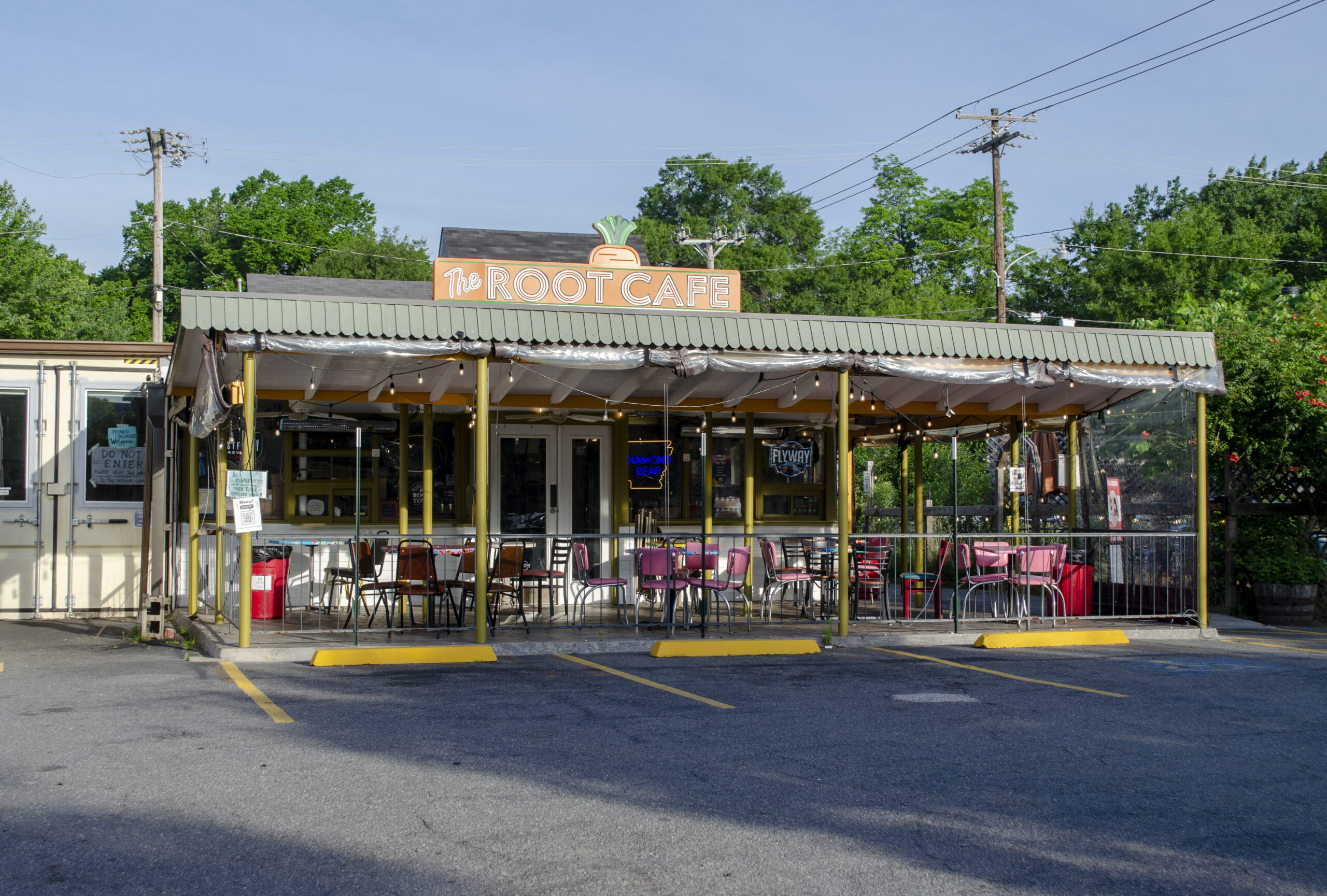The coronavirus pandemic has changed everything, and a lot of things won’t change back. Faced with existential crisis, people have been forced to ask themselves what really matters: connecting (or reconnecting) with family and close friends; taking charge, often for the first time, of our physical and emotional well-being; and devoting time to latent interests like baking, chess or a musical instrument we’ve always been drawn to. Without discounting the devastation the pandemic has brought to so many, I often find myself talking about the pandemic’s silver linings: those quality-of-life improvements that we hope to maintain in the Aftertimes.
My wife and I own and operate two restaurants in the SoMa neighborhood of downtown Little Rock — The Root Cafe and Mockingbird Bar & Tacos — and without a doubt this has been the most difficult period we’ve faced in the restaurant industry. Challenges like seating capacity restrictions, belligerent anti-maskers and the high cost of to-go containers have become almost afterthoughts, accompanied by bigger-picture issues like the moral quandary of balancing our businesses’ financial well-being with the health and safety of our staff, as well as the simple fact that people can’t eat in a restaurant without taking their masks off. But just as in my personal life, I see silver linings for the restaurant industry — ways the pandemic has changed the business of food service that will allow us to better serve our customers, employees and the community at large.
A prime example of this is the number of restaurants now offering groceries alongside their prepared foods. Restaurants have access to a supply chain of gourmet and specialty products that are often very different from what grocery stores offer. With more people cooking at home during the pandemic, groceries simultaneously offer a new revenue stream for restaurants and a source for unique ingredients for home chefs.
Both of our restaurants focus on farm-to-table sourcing; instead of placing one or two large orders with food distributors each week, we order from 25-30 local farms and producers to procure the majority of our inventory. (In full transparency, we also place small orders with distributors for items that aren’t available locally, but about 77% of our inventory is locally sourced, which ranks us in the top half of 1% for farm-to-table restaurants nationwide.) When the pandemic first hit we knew that our farmers would take weeks or months to slow down their production — you can’t tell a chicken to stop laying eggs — yet we wouldn’t need nearly as much as we normally did, due to an immediate and precipitous drop in sales. We quickly pivoted to offer farm-to-table groceries as a way to help our suppliers sell the products they had grown or produced especially for our restaurants, things like fresh strawberries, farm fresh eggs, pasture-raised meats, organically grown spring mix and kale and gourmet mushrooms. To me this is a win-win-win situation: Our customers get access to high-quality local food that’s normally only available in Little Rock at a weekend farmers market; our restaurant makes an additional sale and spends more money with a local grower; and the farmer receives extra revenue to put back into their small, diversified farm.
Farm-to-table groceries have become such an important part of what we do that we’ve started plans to build a 500-square-foot micro-grocery store on the concrete pad at the corner of 15th and Main, which will allow us to continue offering this service once we go back to full dine-in service at the restaurant. It may have taken a pandemic for us to start, but farm-to-table groceries are a perfect way for us to expand on our mission of building community through local food.
A second area where the restaurant industry has shifted is the expansion of delivery and takeout options. Chief among these in my opinion is the rise of third-party delivery platforms like Door Dash and Bite Squad, through which customers place an order with a restaurant, pay for the order and have it delivered directly to their doorstep. The National Restaurant Association estimates that in the second half of 2020, 41% of all American adults, including almost two-thirds of Gen Z adults and millennials, ordered delivery through a third-party platform. For a business owner, this is a level of consumer demand that is impossible to ignore. Pre-pandemic, we had always avoided using third-party platforms for various reasons — clunky integration with most point-of-sale systems, exorbitant fees and lack of control over the customer experience once the food leaves the restaurant. Now, however, rather than a passing fad, third-party delivery seems to be offering a service that customers want and are willing to pay for, and because it’s too economically inefficient for most small restaurants to handle delivery in-house, third-party delivery is likely here to stay.
Another takeout/delivery change specific to Arkansas is the recent signing into law of Act 703, which will allow restaurants to sell beer, wine and cocktails to-go. At the beginning of the pandemic, Governor Hutchinson signed an executive order that let restaurants sell beer and wine in sealed containers (cans and bottles of beer, bottles of wine), which helped a lot of food and beverage establishments support the beverage side of their business. As is often the case, the cultural devolution trumpeted by evangelical fearmongers failed to materialize, and businesses and customers are both better off for the change. The Alcoholic Beverage Control Board says it will take 60-90 days, perhaps longer, to put the new law into effect, but it will be another permanent change going forward.
A third major and lasting development in restaurants will be a continued shift toward more outdoor dining. For one, there are a lot of people who may never feel comfortable dining inside a packed restaurant again, especially if they have unvaccinated kids or a chronic health condition, and the industry is already adapting to accommodate this demographic. But more than that, people have discovered a sense of joy in sharing outdoor areas with their community, and this is a change we should all embrace. Being outside, whether it’s in our front yard at home, waiting for ice cream in front of Loblolly Creamery, or shopping at the Bernice Garden Farmers Market, connects us with our neighbors, keeps us caught up on current events, and leads to important conversations about community improvement and revitalization.
In June of 2020, together with the Downtown Little Rock Partnership, I helped develop and launch the SoMa Outdoor Dining Room, a setup of tents, tables and chairs that serves as an outdoor eating space for patrons getting takeout from any of the neighborhood’s restaurants. As people eased back into socializing, seeing folks they hadn’t seen since the pandemic started, I kept hearing the same refrain: Little Rock needs to have outdoor spaces like this outside of the pandemic — places where you can drink a beer or margarita outside, where you can listen to a band or play trivia with friends, where kids can run around a little bit without their parents feeling bad about it.
While the SoMa Outdoor Dining Room will likely be gone after the pandemic, we’re making plans at Mockingbird to add a front patio on the Main Street sidewalk, and other restaurants in SoMa have similar aspirations. Indeed, the Restaurant Revitalization Fund, part of the American Rescue Plan Act of 2021 signed by President Biden in March, aims to help restaurants bounce back from the devastating losses of the pandemic and specifically names “Construction of Outdoor Seating” under the program’s allowable use of funds.
There are always subtle changes happening in the restaurant industry, as in almost any business sector, but the pandemic has been a time of more seismic, foundational change. The past year has forced businesses everywhere to adapt and get creative in order to survive. We’ve all heard that “necessity is the mother of invention,” and there’s no inspiration to change like the threat of extinction. In addition, besides just the need to change, the pandemic has furnished an ideal opportunity for businesses that wanted to change something to try new things without the fear of publicly falling on their face, and this has led to a willingness to think (and act) outside the box in a way that many businesses are normally reluctant to do.
Going into the summer, there’s reason to be cautiously optimistic that the pandemic is winding down, which makes it time to start thinking about the new normal. Changes we made out of necessity that no longer make sense will fall by the wayside faster than you can say “fully vaccinated.” However, a lot of changes are here to stay — things we never knew we were missing, or a right decision that it took a global pandemic to give us the courage to make. I, for one, am hoping that the silver linings of COVID-19’s very dark cloud will soon become the clear blue skies of a better and brighter future for all of us.
Jack Sundell is a restaurateur in Little Rock.
The coronavirus pandemic has changed everything, and a lot of things won’t change back

Dolor Amet
Sed ut perspiciatis unde omnis iste natus error sit voluptatem.
Nemo enim ipsam voluptatem quia voluptas sit aspernatur aut odit aut fugit, sed quia consequuntur magni dolores eos qui ratione voluptatem sequi nesciunt.
Ut enim ad minima veniam, quis nostrum exercitationem ullam corporis suscipit laboriosam, nisi ut aliquid ex ea commodi consequatur? Quis autem vel eum iure reprehenderit qui in ea voluptate velit esse quam nihil molestiae consequatur, vel illum.
Sed ut perspiciatis unde omnis iste natus error sit voluptatem accusantium doloremque laudantium, totam rem aperiam, eaque ipsa quae ab illo inventore veritatis et quasi architecto beatae vitae dicta sunt explicabo.
Nemo enim ipsam voluptatem quia voluptas sit aspernatur aut odit aut fugit, sed quia consequuntur magni dolores eos qui ratione voluptatem sequi nesciunt. Neque porro quisquam est, qui dolorem ipsum quia dolor sit amet, consectetur, adipisci velit, sed quia non numquam eius modi tempora incidunt ut labore et dolore magnam.
Join
Work With Me





0 Comments